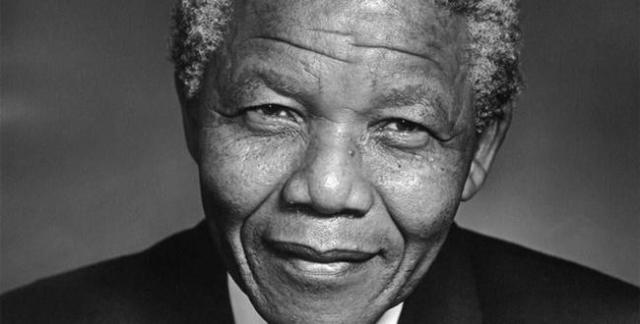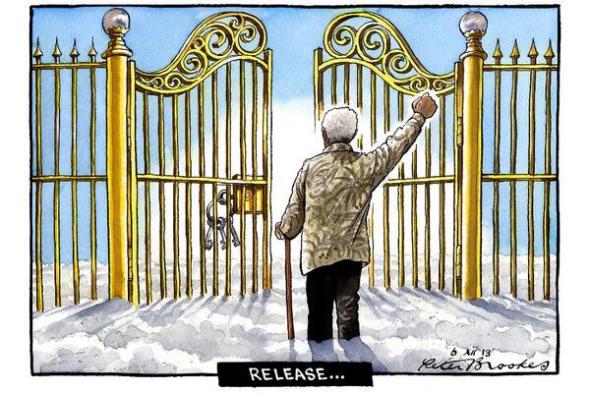As eulogies about Nelson Mandela abound, one thing they all seem to have in common is the need to remember the great man’s ideals and to learn lessons. But as antagonisms, conflicts and violence continue in several regions of the world, some of these tributes appear meaningless and hypocritical when uttered by individuals who fail to uphold Mandela’s principles in their own country. There are many lessons we should learn from Madiba, I have only selected a few.
Perseverance
`I have fought against white domination and I have fought against black domination. I have cherished the ideal of a democratic and free society in which all persons live together in harmony and with equal opportunities. It is an ideal which I hope to live for and to achieve. But if needs be, it is an ideal for which I am prepared to die.” – Defence statement during the Rivonia Trial, 1964
Perseverance. This one of the lessons we must learn from Mandela. You do what you can do must but do it. At the beginning of his life, he had more losses than victories. He was an ambitious man who was born in system that confined black South Africans to certain roles and areas. On multiple occasions he could have given up to fate and despair. But trapped between four prison walls, dispossessed of almost everything he owned except his freedom to think, he refused to give up on his ideal. He succeeded thanks to his sense of conviction and ambition.
There is only one world: local is global
Although Mandela fought against an apartheid regime specific to South Africa, his movement and ideas are transnational in nature. Fought by local actors against a local system of racism, his struggle was nonetheless about the universalization of basic rights and the recognition that all human being deserve to be treated as equals. Mandela’s fight for freedom, peace and democracy went well beyond South Africa’s borders and could be applied to Canada’s relationship with its Native communities which remains thorny to this day. Because of its timeless and borderless nature, Mandela’s struggle continues to resonate today.
One’s freedom is dependent on the freedom of the other
“A man who takes away another man’s freedom is a prisoner of hatred, he is locked behind the bars of prejudice and narrow-mindedness. I am not truly free if I am taking away someone else’s freedom, just as surely as I am not free when my freedom is taken from me. The oppressed and the oppressor alike are robbed of their humanity.” – The Long Walk to Freedom, 1994
Mandela’s political philosophy and view of humanity is something that should be pondered on as wars, hatred and hostility continue to divide people and peoples. Humanity and freedom are rights that every human being should enjoy and that the other has the duty to respect. For Mandela, the apartheid system did not only deprive black South Africans of their humanity, but the oppressor himself, blinded by hatred, was dispossessed of his humanity. But nobody was born hating the other, he said. We are all dependent on one another and as long as walls exists between peoples, cultures, religions and societies, we will not thrive. As Mandela stated “Great anger and violence can never build a nation.” He therefore worked with his oppressors and made them allies in order to avoid more tragedy in South Africa. As the Israeli and Palestinian press eulogizes Mandela, perhaps their people and leaders would do best to remember him by reaching out to each other.
Leadership and responsibility
“I stand here before you not as a prophet but as a humble servant of you, the people.” On release from prison, February 11, 1990
Mandela’s death occurred on the eve of the “Africa-France Summit” where nearly 40 African leaders gathered to discuss peace and security. As French President François Hollande said in his introductory speech is symbolic and “it also means that we have to face up to our responsibilities.” Overshadowed by the violence and French intervention in the Central African Republic, the summit suddenly acquired a new message.
With dictatorships and despotic, demagogic leaders still going strong in several parts of the world, Mandela’s idea of responsible leadership is something that many head of states should reflect on. A true leader is someone who understands that he has a responsibility work for and protect his people. In his eulogy of Mandela, former Prime Minister of Canada Brian Mulroney writes: “As we watch communities in Africa and the Middle East struggle to free themselves from decades of despotic leadership, let us hope that their next generation’s leaders are moved by the passion, the dignity and the grace of Nelson Mandela (…).”
African leaders now praising Mandela’s life should perhaps take a look at their own path and the legacy they want to leave behind. South African President Zuma called on his people “to build a united, non-racial, non-sexist, democratic and prosperous South Africa” but he should focus on the state of the ANC party leadership first. In Zimbabwe, Robert Mugabe may have freed his people from an oppressive white minority but he has become a brutal leader unable to give up power. Uganda’s Yoweri Museveni, once a freedom fighter like Mandela, has been in power for 27 years. They failed as liberation heroes.
As world leaders, state representatives and people from across the globe gather in South Africa, they should not simply remember Mandela’s legacy and ideals. They should also implement them. Or else they will remain just that: ideals.

